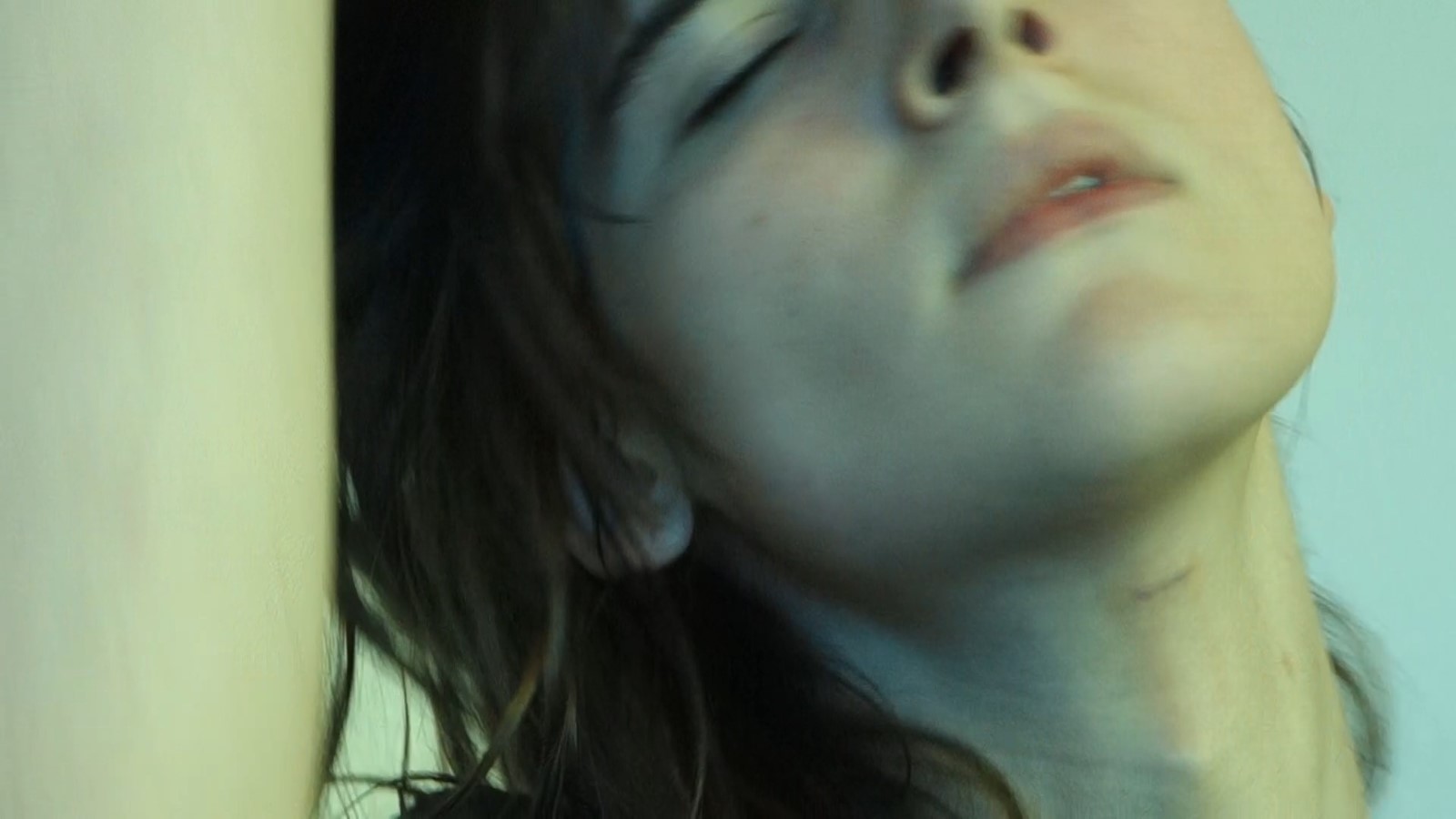The artist Wolfgang Tillmans actively fought for Britain to stay in Europe with his series of posters published in the run-up to the referendum. Now that the campaign is lost and after the shocking result of the US election, Tillmans (who has a one-man show at Tate Modern until 11 June) and his long-term friend, Hans Ulrich Obrist (the Swiss-born artistic director of the Serpentine Gallery), look back at 2016 and ask what can art do in terms of society? And why is it so hard to stand up and speak out for something?
Hans Ulrich Obrist: Last time we spoke you were in the middle of your anti-Brexit campaign. I wondered how it got started?
Wolfgang Tillmans: It’s funny now in retrospect, I can’t pinpoint it. I had this growing feeling in the beginning of the year that there was an imbalance, that the campaign pro-remain looked very uninspiring. There was no one who was prepared to be passionately pro-European. There were only some voices of reason reasoning why it would be better to stay, but there was no love for the European idea, and no one who was prepared personally to speak out and do so from an ideas point of view, rather than a bad consequences point of view. That’s why I felt there was an imbalance, because there was a lot of personal passionate talk against Europe.
HUO: A lot of propaganda.
WT: A lot of propaganda. Having lived in the UK for over 25 years, I know the dynamics of the press propaganda, the Murdoch and Daily Mail propaganda, and I could see that if there was not enough love and positive emotion around the European idea then the hate campaign would win. And that’s ultimately why I felt the US election was too close to call. Because there was not enough love for Hillary, but there was a lot of hate on the other side. And I guess we have to learn from that for the future. You have to win the argument somehow with heart and mind. It can’t just be reason. Unfortunately reason doesn’t seem to be enough.
So I thought there was this sense of imbalance and I thought okay, if nothing happens it will be Brexit. It was just very clear to my eyes. Thinking that myself, my whole life story, is based on a European dialogue, an English/German story. My life has been between the two countries...
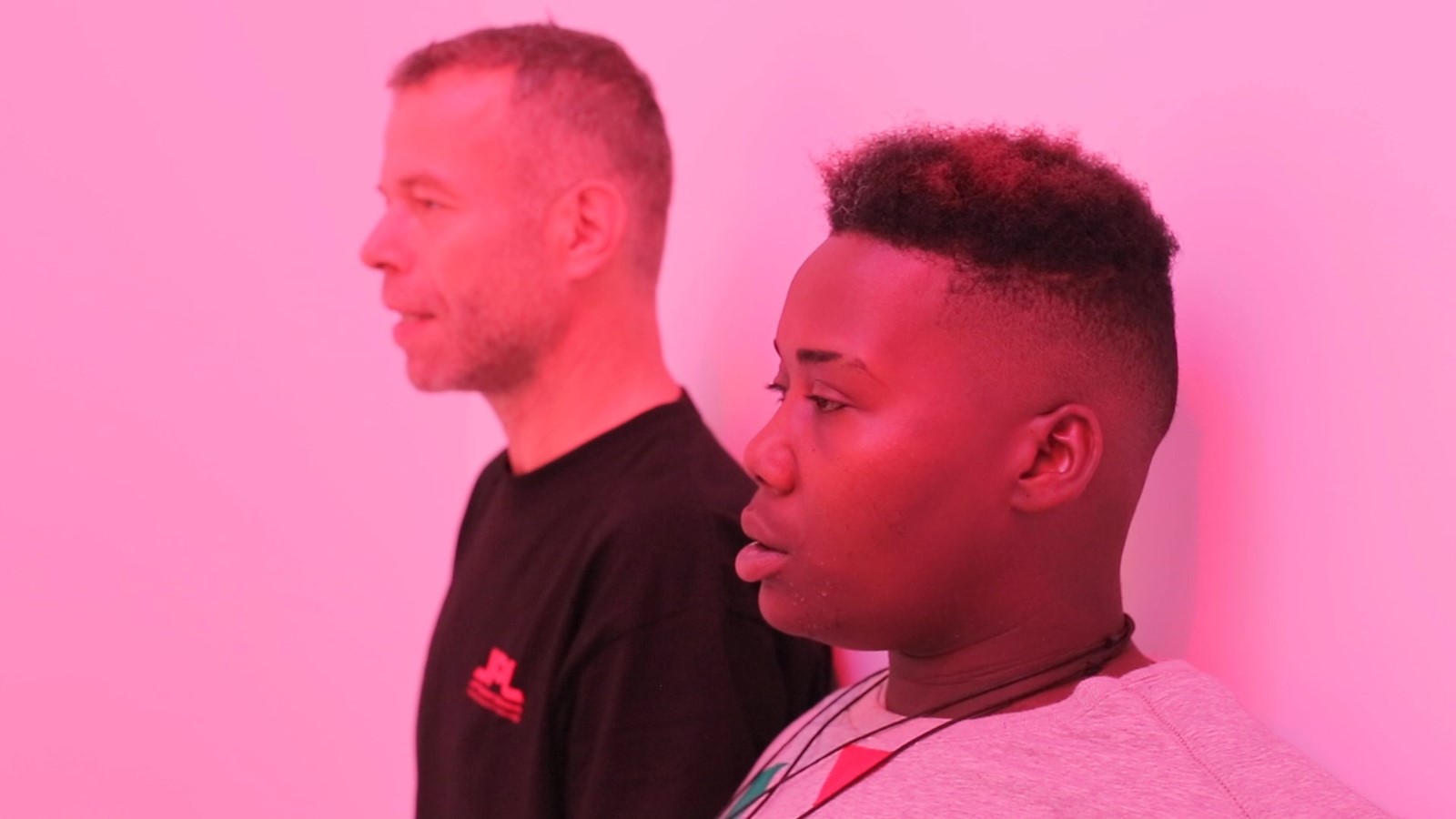
HUO: My story is less a two-country story, I come from a small country so it’s more small-country syndrome, it’s a bit claustrophobic, so you go to the big city, you go into exile. Mine is more the story of multiple exiles. So it’s different but what is the same, because we are the same generation, is it was a very European biography. We always used to think of Europe in terms of freedom of movement. There were all these group shows, shows were where our generation met, Aperto 93, Cities on the Move, L’Hiver de L’Amour... all these shows happened in Europe.
WT: I don’t think it was like one country, but it had the spirit of amazement: we are friendly brothers and sisters. Clear identities, yes, but there was a sense of positivity about this multitude of nations being equally together. Coming back to the campaign, as my situation is so intertwined with the European idea, and that that would suffer such a deep blow, I found it absolutely hard to stomach. I still believe it. It’s a very bad message in these dangerous times, it’s like the worst message at the wrong moment, in regard to Russia, Turkey, and of course now the US. I thought I had to do something. I thought I would stick to the old style political poster, which I’ve always believed in – a poster still works, because if they didn’t work they wouldn’t exist.
HUO: We have one of the campaign posters here, What is Lost is Lost Forever.
WT: Then I came up with this three-channel distribution idea so people could download PDFs and print their own A3 posters. And then the same posters were also downloadable as JPEGs for social media, but then I also wanted to do proper A1 posters, so we printed 25,000 – ten different ones of the total of 40 posters we created.
“You have to win the argument somehow with heart and mind. It can’t just be reason. Unfortunately reason doesn’t seem to be enough” Wolfgang Tillmans
HUO: The images are from your archive?
WT: Yes the design and texts were by me, with great input from Paul Hutchinson, an assistant here in the studio. For example “What is lost is lost forever” is a sentence that came into my mind some two or three years ago because I’m always aware that with regulation or censorship, when something is closed down, often it is not without consequence, it’s not like a replacement will be there tomorrow. I was thinking about that initially in an illegal nightclub in New York, the Spectrum. I was thinking, this is such an amazing space, but it’s always on the verge of being closed down. The moment you close a place like that down a whole social scene is lost.
HUO: What made the Spectrum so special?
WT: It’s really only in the light of the lack of alternative un-commercial nightlife that it is so special. There is very little nightlife left in inner cities, as we know, and it’s a huge problem in London now as well as New York. It’s been a big hobbyhorse of mine for many years, that I find nightlife is a much more cultural, deeper activity than it is often seen as. It’s seen as a frivolous extra, rather than a central part of life and expression for a big group of people. It doesn’t have to be for everybody, but because it is only a smaller group that lives in the night, they only thrive on what’s given, they are never the majority. Nobody is promoting these rights, so regulations squeeze out nightlife and it is lost forever.
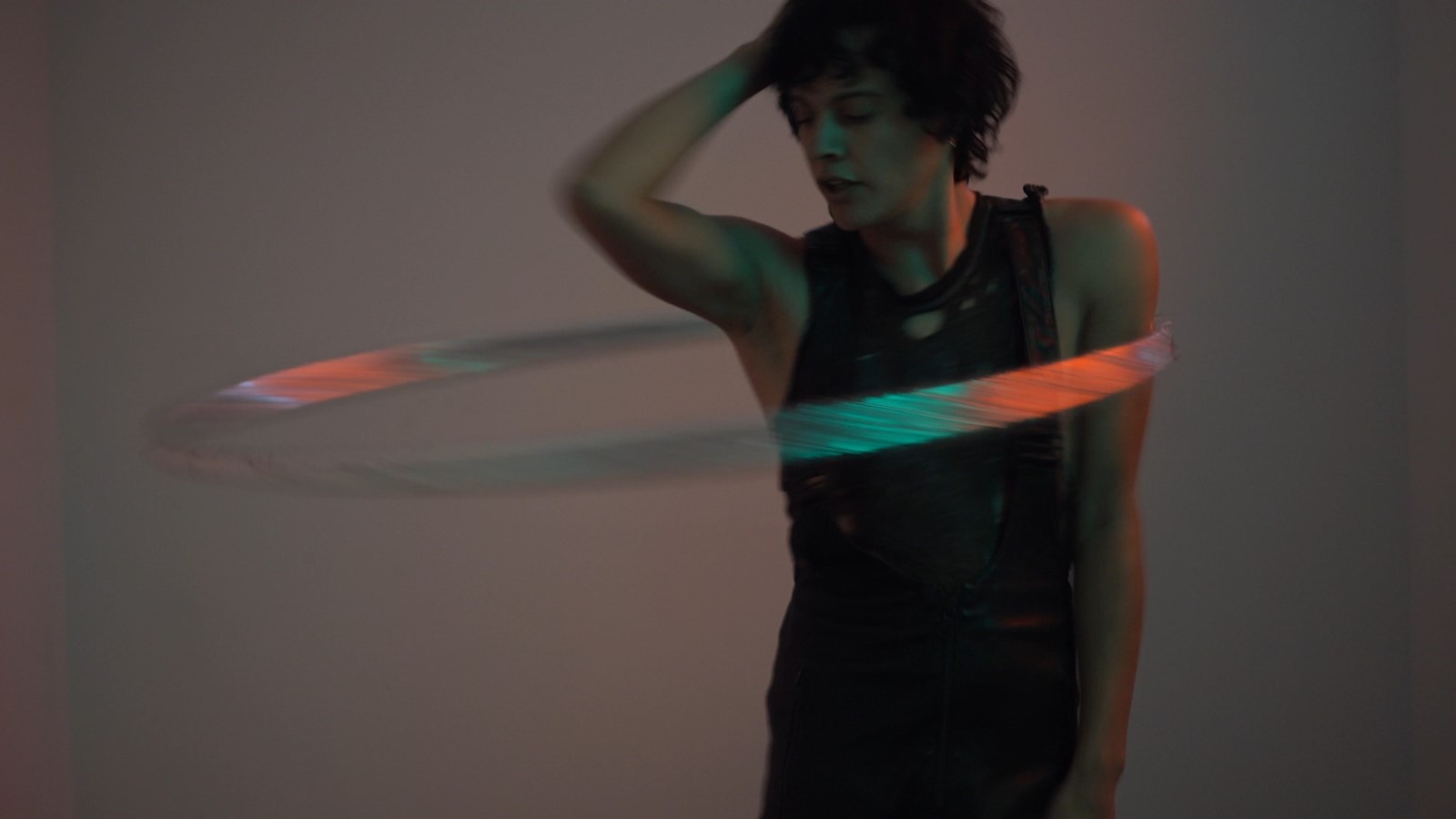
HUO: It is important that London’s mayor Sadiq Khan has appointed a Night Tsar. It’s a very important thing, the city at night. You and I have gravitated towards cities like London because we come from cities that don’t work at night.
WT: The fact that London has a so-called Night Tsar is not a sign of how great things are, it’s a sign of last resort, of crisis. I was speaking to an American friend yesterday and he was saying how deeply capitalist through and through London is today. There’s very little space that’s not serving a function within the economic system. In this day and age, when it’s all about the economy and maximising profits, people going out late is not seen as a productive activity.
HUO: It’s of course also essential as a laboratory. Clubs are as much a laboratory for music and emerging music as art centres are for art. You always told me about music developments which you heard first in clubs. They are a lab for sonic experiments.
WT: One needs to make clear what nightlife we are talking about, there is of course the after-work drink at the pub that’s still allowed, but the nightlife I am talking about was a fearless space, a space that is not 100 per cent under control, where people can be together without fear and without oppression and intimidation, and ideally experience their bodies and music and various stages of intoxication and sexuality. That’s the problem, only super-controlled venues can operate in London, there isn’t that sense of freedom. Why does that kind of nightlife that is a little bit out of control, out of reach of the authorities, of the capitalist system, scare people so much?
HUO: So the slogan “What is lost forever” is direct from Spectrum.
WT: These titles or sentences, they come to me as they come to anybody, on the street, on a walk, but, yes, coming back to the idea for the campaign... I wanted to make messages which were multi-directional, touching on different issues, trying to speak about the EU in a positive way, or in an emotional way, and not focus on one single poster or message. You don’t normally release 40 different posters with different designs and different messages. But there are so many messages at play, be it the Erasmus student programme, or Eastern Europe where the EU has a much more crucial role, where it is the protector of people’s rights against right-wing governments, like Hungary or Poland. To leave those people alone now seems so crazy and selfish. I was just very inspired by this, and when you’re inspired there’s little holding you back. So there was a very free flow of ideas and texts and designs and it all came together very quickly, within a month or so. I accompanied it with letters to imaginary friends which explained my ideas and thinking. Those were important because they explained the passion and concern behind the campaign.
HUO: And will it be a book in the end?
WT: I wish in the end it would have succeeded. That would have been the more interesting result. I expected there to be much more pick-up from the official Remain campaigners. For example, we tried to give the posters to the Labour party and for whatever reason they wouldn’t or couldn’t use them.
HUO: So it was blocked by the political establishment?
WT: Yes, the Leave campaign could play dirty tricks and spin lies, but the Remain campaign said to me, “Well, you can say these messages, but we can’t.” If they can spin lies, why can’t the Remain campaign say facts but in an emotional way? I just couldn’t believe that. So, in hindsight, I think it’s really important to build alliances beforehand.
“The nightlife I am talking about was a fearless space, a space that is not 100 per cent under control, where people can be together without fear and without oppression and intimidation” Wolfgang Tillmans
HUO: Now that the campaign is lost and after the dramatic result of the US elections, what’s next? What can art do in terms of society? I recently spent time with Edi Rama, an artist who is now the prime minister of Albania. In 1991 Eileen Myles ran a campaign with her dog for US president, which was great. So one thing would be if artists, writers, novelists could run for office. The second thing is how can one infiltrate society? We’re doing a retrospective at the Serpentine of John Latham who, with Barbara Steveni, in the 1960s with the Artist Placement Group put an artist in a ministry or a big company next to the CEO to change companies. That’s the strategy of infiltration. Or, of course, there could be more campaigns like yours, but they would have to be trans-national, it’s now such a global problem.
WT: That’s exactly what I want to do. It’s handy to nationalise this problem of right-wing tendencies, to point fingers at this or that country, I guess now it’s clear to everybody that it’s affecting every western country. It seems that naturally 20 per cent of people in society believe in authoritarian ideas. They didn’t have the upper hand for many decades. They are now rearing their ugly heads and speaking out because of the success progressive values have had over the past 50 years. This is old white men on their last legs. But there is something about these ideas that rejuvenate themselves. It is not just old white men.
This 20 per cent now feel they can express their dismay about women’s rights, gay rights – it always seems to hinge on those visible things like race, sexual orientation and gender. And basically I have to try to keep them to that 20 per cent, because when you have 40 per cent, with electoral systems, you can easily end up with them in government – like we see in the US.
But how do you do that? What messages change minds? That’s where the most worrying thing comes into play, the “backfire effect”. This sociological term describes how when people are faced with the truth about an untruth they believe in, it will not change their view for the better, instead it actually makes them believe even more strongly in their untruth. So if you show a climate change denier the facts, it actually reinforces his belief in climate change as a hoax. That is really really really worrying.
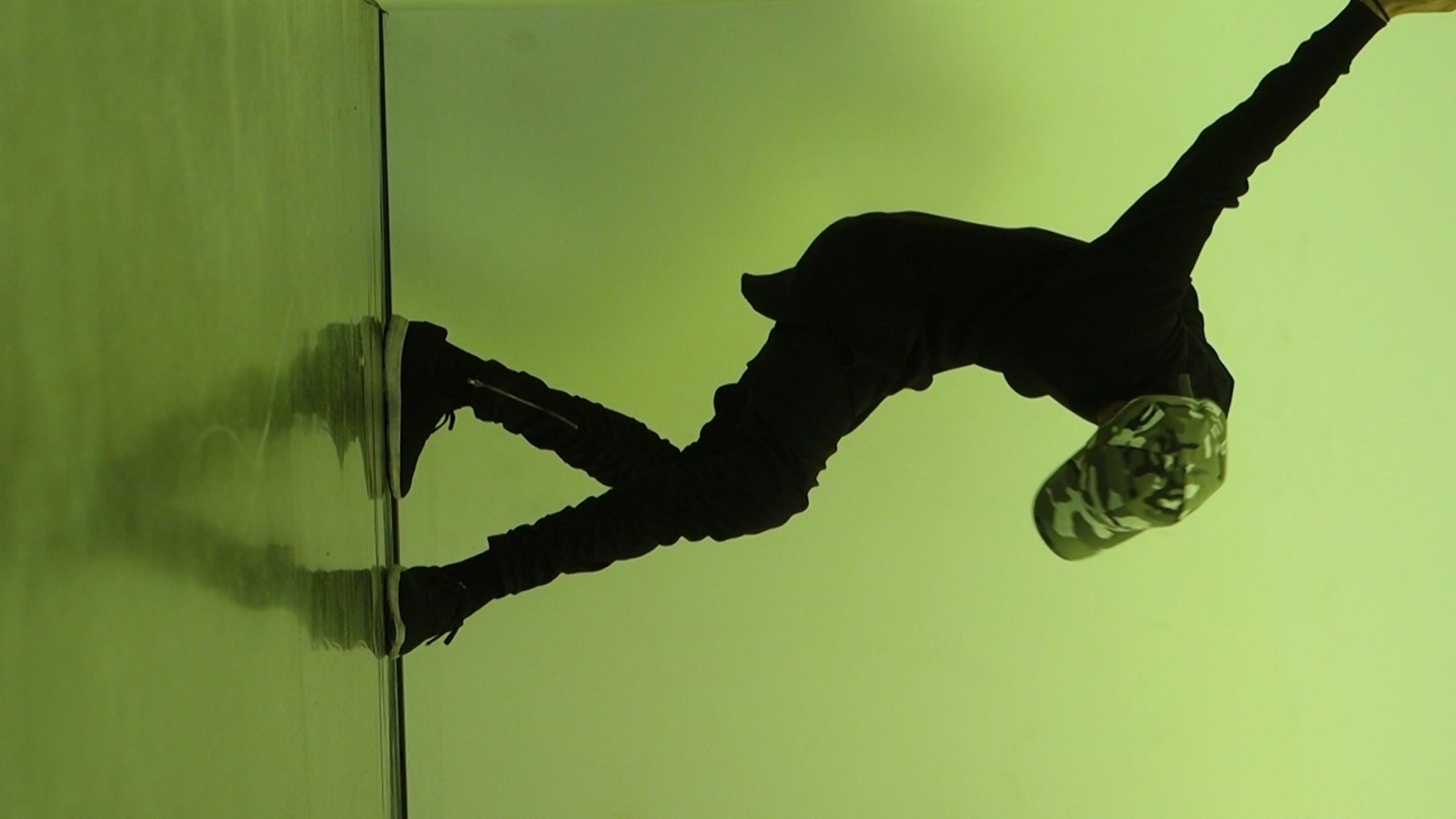
HUO: And that goes hand in hand with the “filter bubble”. Which is part of why Facebook might have played such a powerful role in the US elections, because more and more the algorithms feed you content they think fits your predilections. Which means that people get lock-in syndrome in their own preferences. One of the key things is how to burst that bubble.
WT: But we are experiencing that right here on the table. We know what each other is saying already. I’m wondering how can discussions in our circles be more results-orientated, rather than just describing the condition.
HUO: That’s what I meant before. Is it an artist running for office, or an artist being placed in society? It’s a question of production of reality.
WT: I’m tired of just describing the situation. Everybody is saying how crazy it is. There is a comfort in that, a comfort in describing how mad everything is, but we have to get over that, we have to get beyond that.
For once I felt not paralysed and felt just the energy to do something and say something. And now I’m observing myself, I’m looking as weeks go by and I still haven’t really started what I’ve been saying I wanted to do, taking the campaign to a pan-European level. When will I feel the urgency to act again? To take the next step? And I myself am an above-averagely active person... how can people change from just being observers, to being involved? We have to look at why is it so hard to stand up and speak out for something. We have to look at vanity. Why are we so concerned with how we look? Rather than just doing the right thing. I think people are extremely shy about getting activistic, in a real day-to-day way. I mean, including me. I could do so much more. But to actually go to an organisation, group meetings, one is extremely shy to do that.
“We have to look at why is it so hard to stand up and speak out for something. We have to look at vanity” Wolfgang Tillmans
HUO: Rem Koolhaas has said that if there were a Brexit situation in Holland, if there is a danger that the extreme right could come to power, he would close his architecture office and become a full-time politician. That’s one option.
WT: Yes, well it is that serious. It doesn’t get more serious than this. Because we are still in a moment where we are able to manoeuvre. The 20th century shows how fast public opinion can be manipulated, and how quickly the planet can change so dramatically, so it’s surprising how relaxed everybody is. Liberal people are always busy enjoying their freedoms and their life, while the unhappy, I don’t want to make presumptions, but authoritarian people are spending all their energy pushing against those freedoms. There are people in religion working against women’s rights; working to stop advances in LGBT rights. They are constantly at it. It’s their mission. They have nothing else to do. They never stop. When you are a nationalist, there is no end to it, it’s your raison d’être. Whereas if you are a well-balanced, happy human being, you have multiple interests and enjoy life to the fullest, ideally, hopefully. And that seems to be a crazy imbalance.
There have been concerns about growing inequality since the anti-globalisation protests in Geneva around 2000. It has been a low-frequency thing but the subject hasn’t just been invented, it didn’t just start a year ago. I posed the question “What’s wrong with Redistribution?” in 2005 as part of my Truth Study Centre table installations, this question of distribution and inequality was around then. I was very aware of it in 2005. Now it’s 2016.
When you think that at the end of this last 15 years of these concerns having been raised in liberal circles, in left-wing circles, that you have a white billionaire man harvest that condition into a right-wing revolution like Brexit and Trump, that is absolutely astounding. The failure of the left to galvanise, or to express or take seriously the concerns, is absolutely shocking.
And of course I also have to ask myself, what have I believed in? My entire adult life has been in a way in the era of the third way. Clinton, Blair... a politics of giving up certain left-wing ideas and thinking that the market will solve this. I wanted this to be alright.
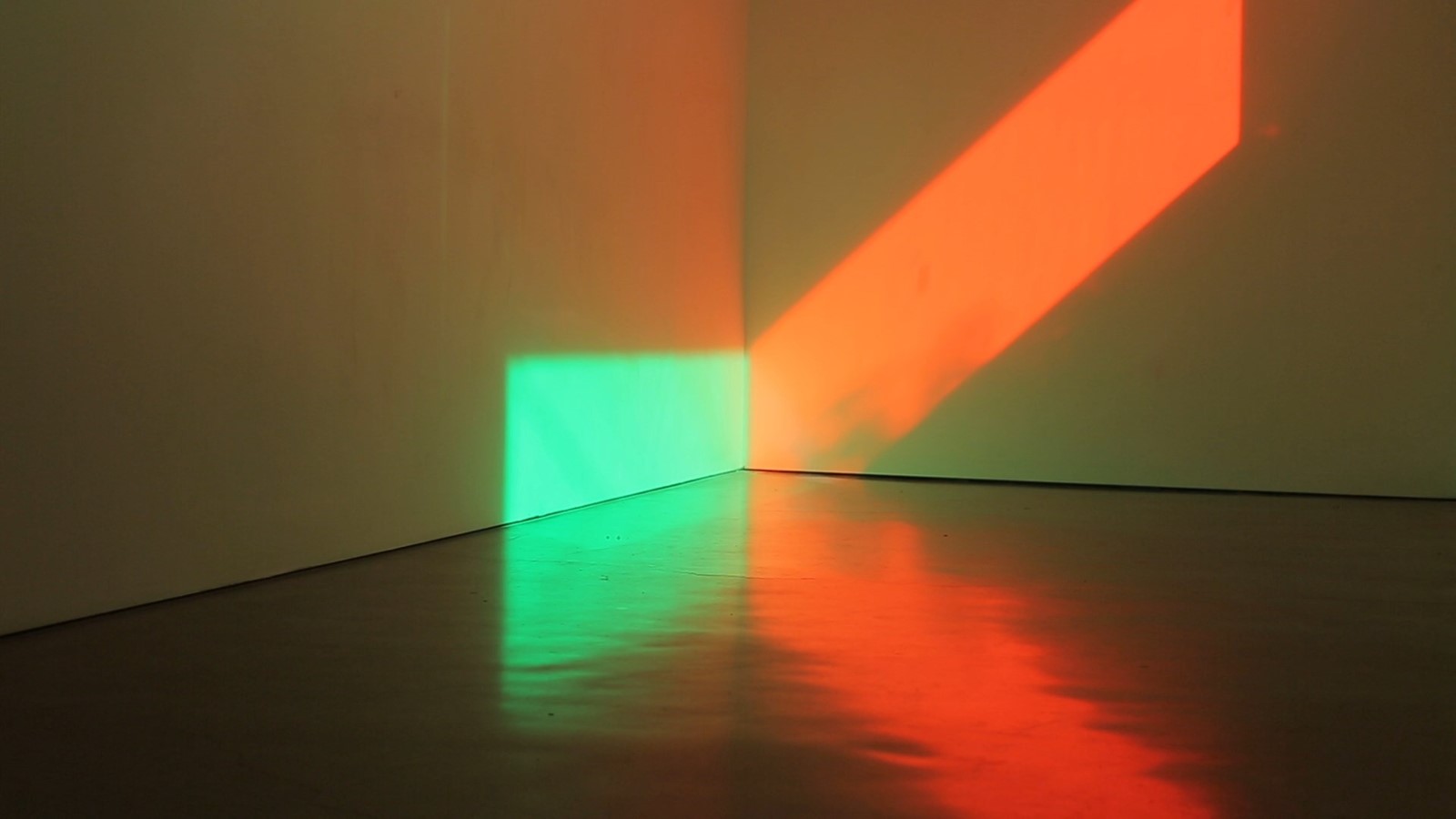
The other thing is the advancement of this aesthetics of hyper-individualisation which doesn’t seem to have helped coherence in society. And that’s where we see all this rage against the elites. It’s symptomatic because obviously the hipsters of Shoreditch are not the reason that people in the north of England are struggling. But they are the ones being pointed at. And so, in the end, our urban lifestyle is being pointed at as what’s wrong in society.
How do you create cohesion in society? You can’t just take a campaign to someone, they won’t eat it if they don’t like it. I don’t know if that can ever be bridged. On the one hand you have super-advanced television programmes like Transparent in the US, but if it creates only more division, if when other people see people enjoying their life and expressing themselves in different ways, that creates an anti-reaction, then that is really fucked up.
HUO: This is a very big question. The question has to be more progress. How can we OUT reach, outside the already converted? How can one convince people?
WT: Yes. Or rather than convince, I think “convince” means win over, there’s already winning involved, the question is more how can you just not have an antipathetic reaction. Why do they feel under attack?
HUO: I think many people thought that your anti-Brexit campaign had come out of the blue but there is all this pre-history. Can you talk a little bit about the genesis of your book What is Wrong with Redistribution?
WT: I thought it was an interesting play of words to ask this simple question, “What’s wrong with redistribution?” When the natural reading of the term has always been, in my time, the redistribution of wealth from richer to less rich people. But the reality of the past 20 years has been that redistribution is actually going from down upwards. That the rich do get richer. It seems now like the old redistribution to the undeserving poor is wrong, is really morally wrong. But redistribution of wealth to the undeserving rich is somehow OK.
HUO: This is why it is important, because you created this visualisation of inequality in a way. What is happening in the studio now? You are working on a new film?
WT: Yes, a video for six songs, the first under the band/project name Fragile. I released two EPs under my own name this year, this will be the third. I played the music to different performers in LA and New York and let them react to it, dance to it, and it surprised me how interesting the results are. I’m super excited about that.
“We are still in a moment where we are able to manoeuvre. The 20th century shows how fast public opinion can be manipulated, and how quickly the planet can change so dramatically, so it’s surprising how relaxed everybody is” Wolfgang Tillmans
HUO: How did the band happen? Suddenly it became much more important?
WT: Well it didn’t exist for 28 years.
HUO: It existed in your head?
WT: No it didn’t. I said goodbye to making music at the end of the 1980s when photography became my language. There was, I could call it a performative urge? Or desire to be somehow speaking more directly, as in using my own body and voice more literally, and then last year I spent three months in New York on Fire Island and made music with a group of musicians.
HUO: Can you describe it? Does it fit into a musical category?
WT: Each song on the Fragile EP is very different. So, as a genre it is probably a kind of Indie Dance, I guess [laughs] or somebody said Art Rock. It’s very important to me that it’s not just an art type of music.
HUO: But it immediately transcended the art world. The Frank Ocean moment...
WT: Yes, it was this bigger story, the Frank Ocean story. He asked if he could sample my music for the intro to his album. And I said yes, and then I thought, seeing is believing. But then I woke up one day in August and realised that this album Endless had come out with a minute intro and a full seven minutes of my song at the end of his album. And I had no idea! If he had told me, I probably would have said, hey I want to release this myself! We can’t do this. Of course, it’s good this way, because I could not have asked for better amplification and exposure.
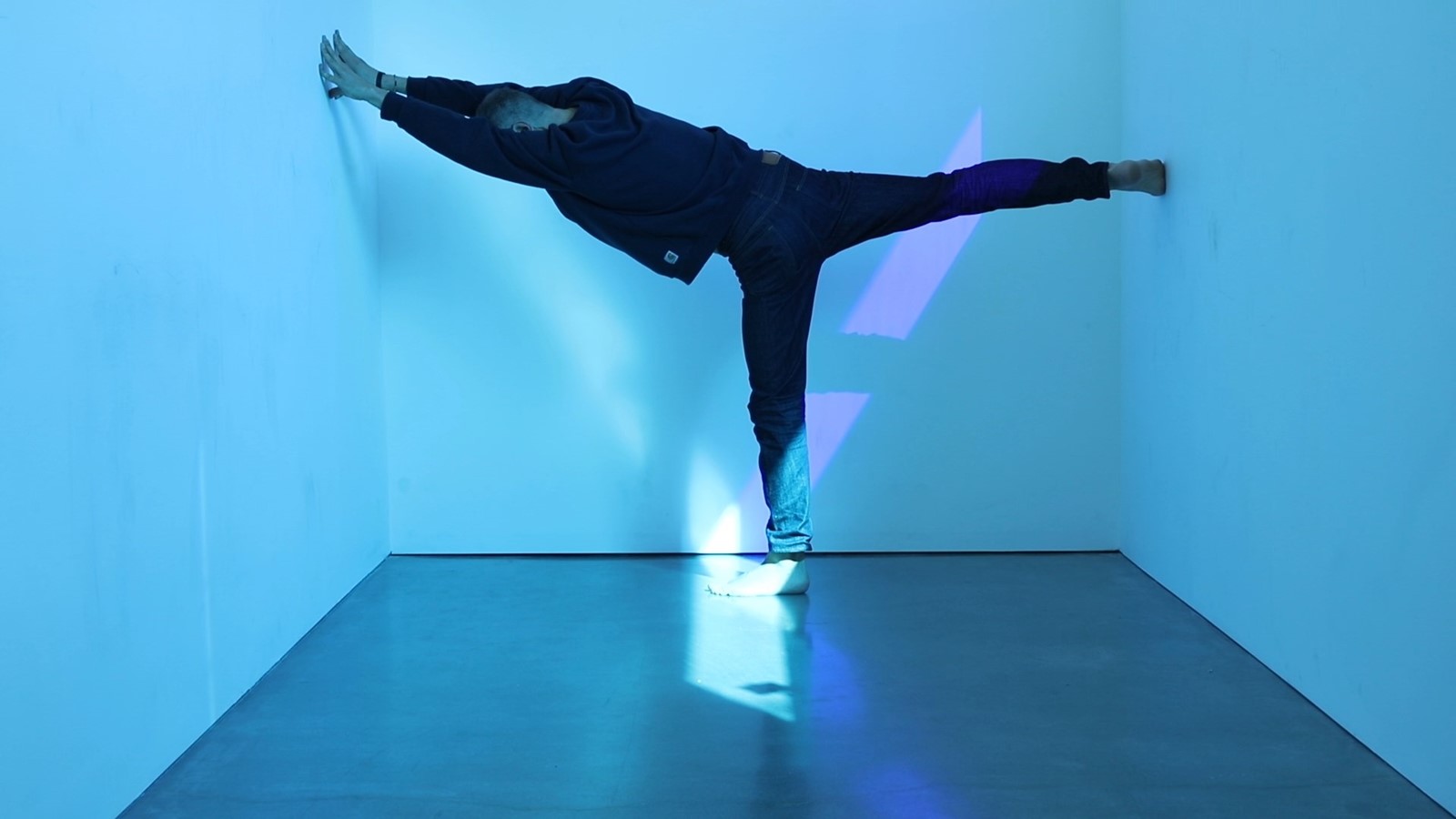
HUO: It’s no longer Art Rock, it’s in the music world, centre stage. Has there also been photography in 2016, new pictures, is there anything we can see?
WT: There was an exhibition that opened in LA at Regen Projects. Almost the entire exhibition is new, and I guess one photograph I’m proud of which looks like just completely white paper, seemingly nothing on it. I just had this realisation on a flight going through clouds, that what I see out there is actually real. I see a cloud, this is what it looks like to be in a cloud, you’re not seeing nothing, you’re seeing a cloud. So I thought, can I take a picture of that. And strangely it does work. It’s a fully 100 per cent figurative photograph. It’s not an abstract, it’s not an abstraction of what a cloud might look like, it IS what it looks like in a cloud.
HUO: It’s an immersion.
WT: Yes but that can’t be seen. You just see what it looks like to be in a cloud. And I guess that the interesting thing sometimes in art, in everybody’s life, it takes sometimes a certain age to get to be able to say certain things. And that I find is a good moment in my photography right now. For example, the photographs of seascapes.
HUO: How did they come about? Are they related to a particular place you have visited?
WT: They’re taken all over the place. All my photographs are arising from a challenge, from an experiment. Like the questions, Can I take a photograph of this? Can I translate what I see into a two-dimensional picture? It’s that translation process technically, artistically and conceptually that drives me and excites me and that’s the challenge. I say this because it is an experiment to want to photograph a wave. The sea has been photographed a million times, painted a million times. It is improbable that a unique, outstanding result would come out.
HUO: Very difficult.
WT: Very difficult, yes. I ask also conceptually why would this be of interest now? Why would it not be just kitschy or random or pop? Decorative. I guess the sea and the cloudscapes also played a role in the anti-Brexit posters, they are not symbols, but they are talking about borders, like the horizon land being a border. They are also talking about uncertainties, like we think we know what we look at, but that’s not always the case. For example, a cloud seems to have a sharp outline, and of course we all know that when you get close to it it just blurs. The horizon is a defined visual point that you can actually never get to. And this interest that I have for a long time in borders, somehow was able to migrate into these formal pictures.
HUO: Is there anything that has been impossible which you could not photograph? Maybe not a subject matter, maybe a person you always wanted to photograph?
WT: There is how to photograph what goes on inside the factories. You know, like what is it like to work at Foxconn in China? As one of 1 million employees that makes iPhones. For all the visibility that we are surrounded with, there is a lot we don’t see. And that is also something one has to ask.
HUO: It’s a beautiful idea. And of course there are billions of images made with these phones, but we don’t have many images of where they are made. It’s fascinating. And what a great conclusion.
That’s Desire / Here We Are EP is available to view on YouTube.
This interview originally appears in AnOther Magazine S/S17.
